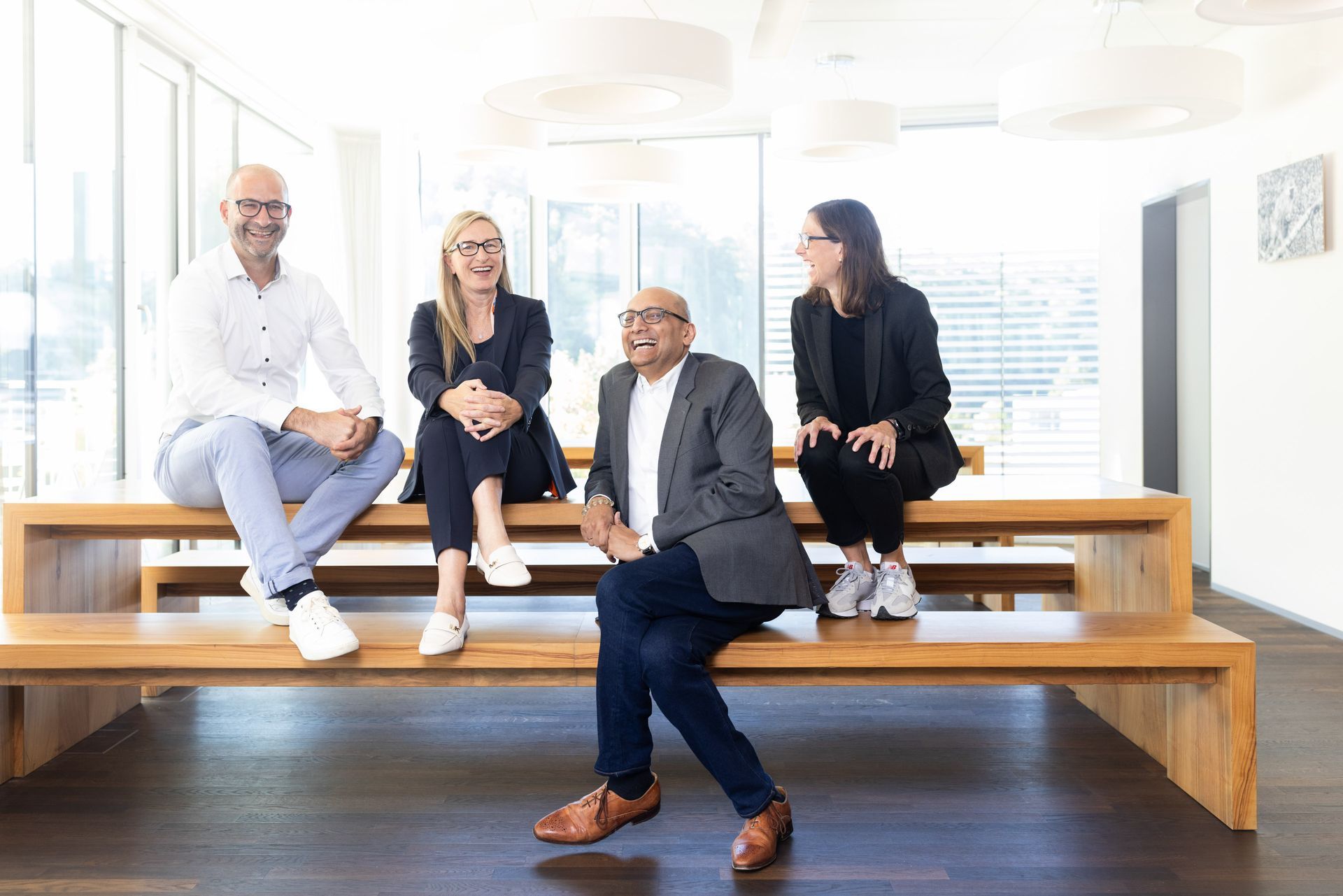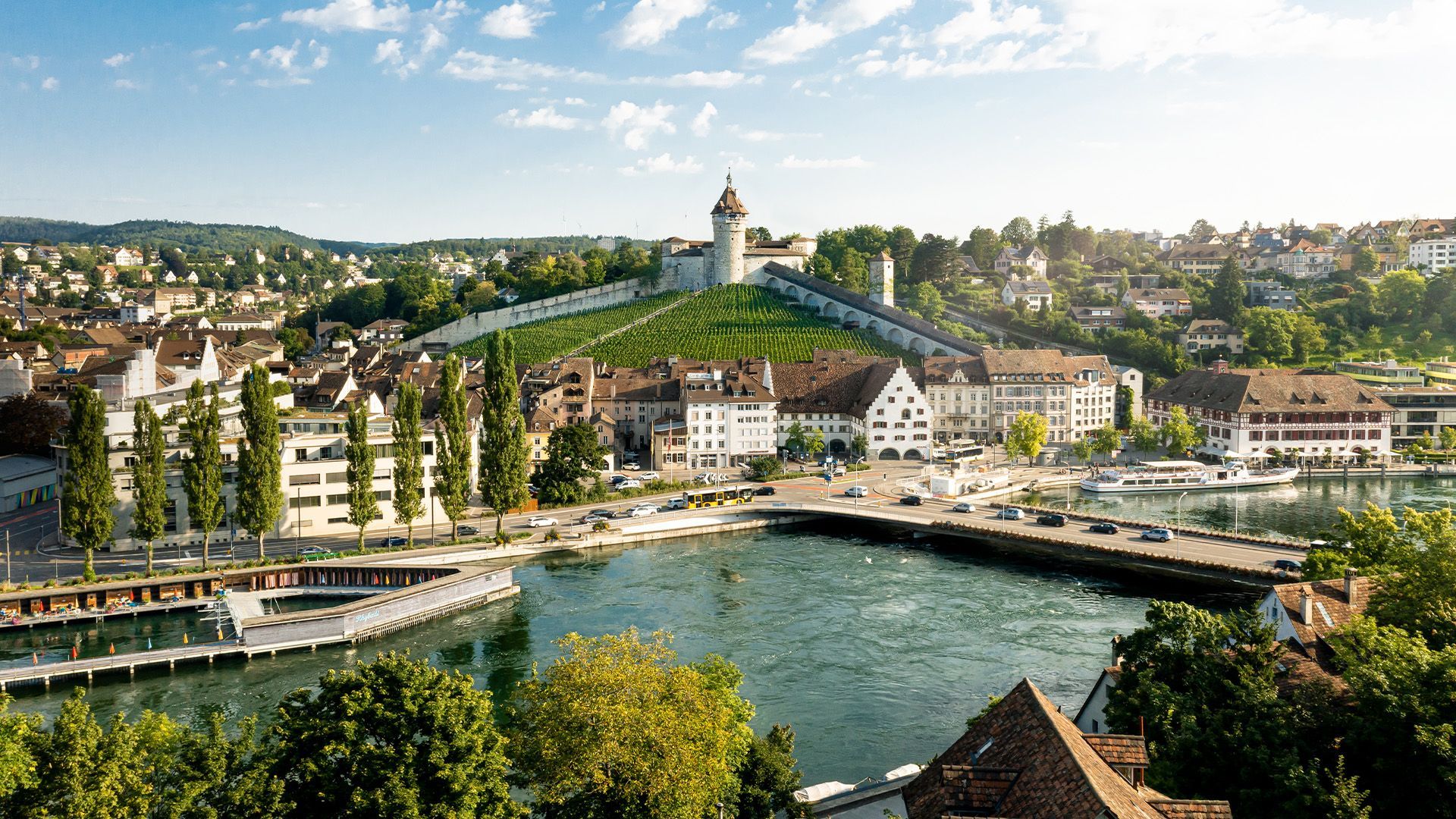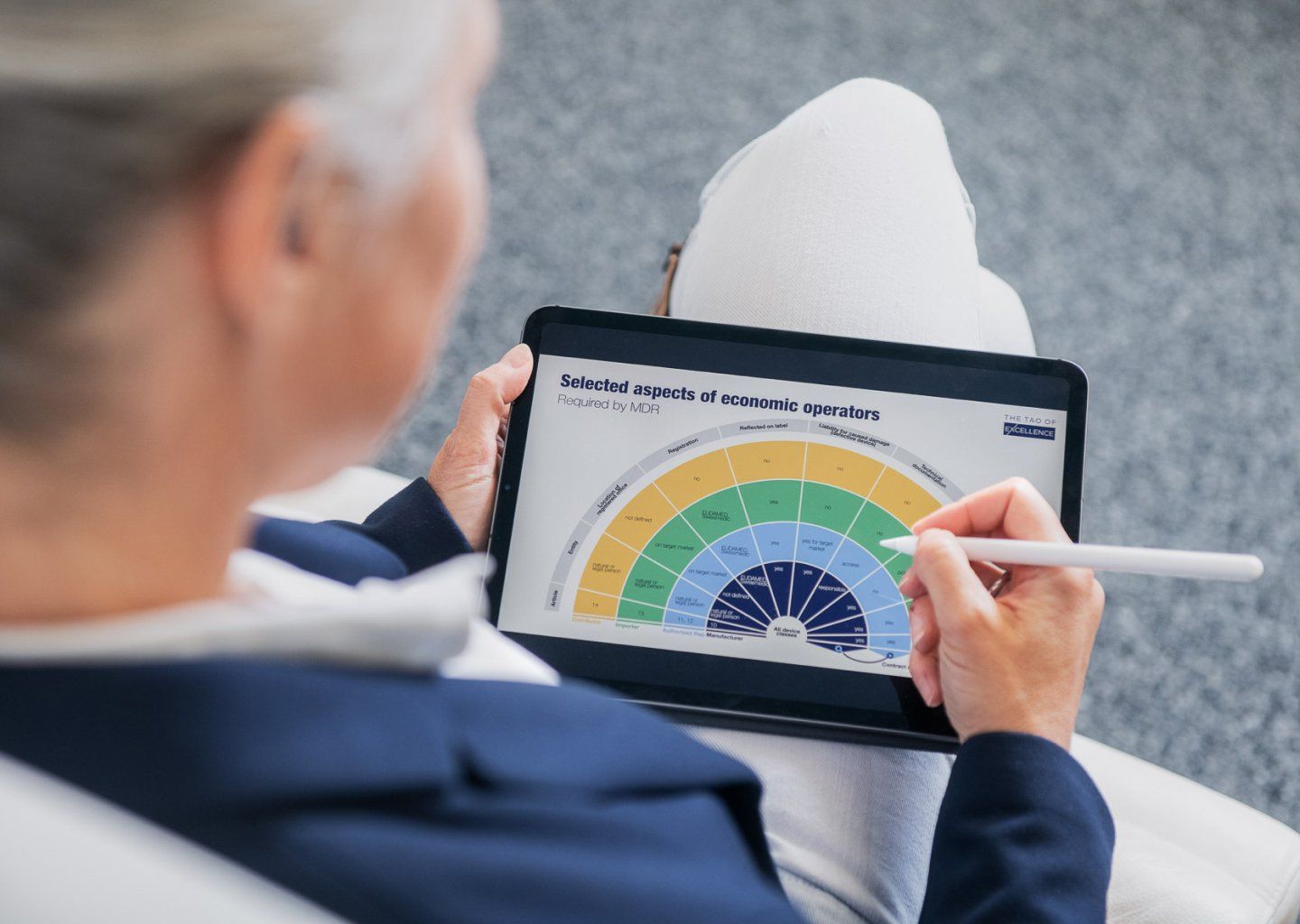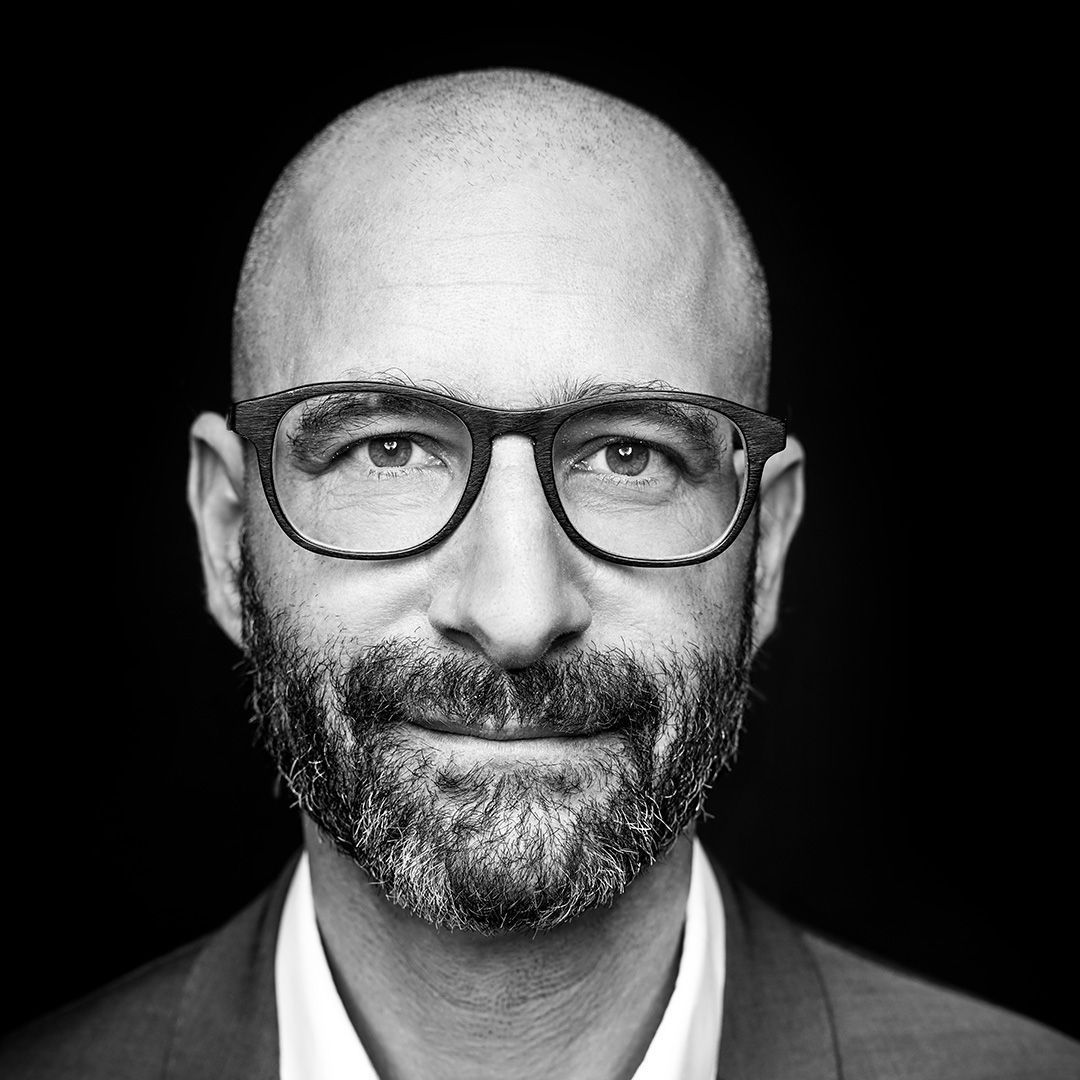Pumps that power the world
How a family business from Neunkirch makes a quiet but powerful impact.
We have many little pumps to thank in our everyday lives. Without pumps, there would be no coffee, no flush toilet, no clean laundry, no brakes in the car - and certainly no air conditioning on the train. Even our bodies are dependent on a single, highly efficient pump: the heart.
There’s more pumps in the world than people. They work in the background and keep things running. But at the same time, pumps are among the biggest energy consumers of all. “If we were to improve the efficiency of all pumps by a few percent, hundreds of power plants could be spared globally,” explains Rolf Schweizer, CEO of the Hidrostal Group.
This is a topic close to his heart: Sustainability in technology. “As the CEO of a globally active company, I have leverage that an individual doesn’t have. We can influence whether our latest generation of engines has an efficiency of 92 or 94 percent. Or we can ensure that our newly-developed pumps achieve over 80 percent efficiency, as opposed to just 50 percent, as is the case with our low-cost competitors. From a global perspective, this has a huge impact: millions of francs more (or less) in revenue, thousands of tons of CO2 emissions avoided. I always ask myself: where can we achieve as much as possible with comparatively little effort?”
And Hidrostal delivers. The production plant in Neunkirch, with its own foundry, is practically CO2-neutral. At their site in France, Hidrostal is installing a solar energy system that produces significantly more energy than the plant requires. “Next year, we will be completely CO2-neutral there too, and we’ll even be able to supply other companies.”
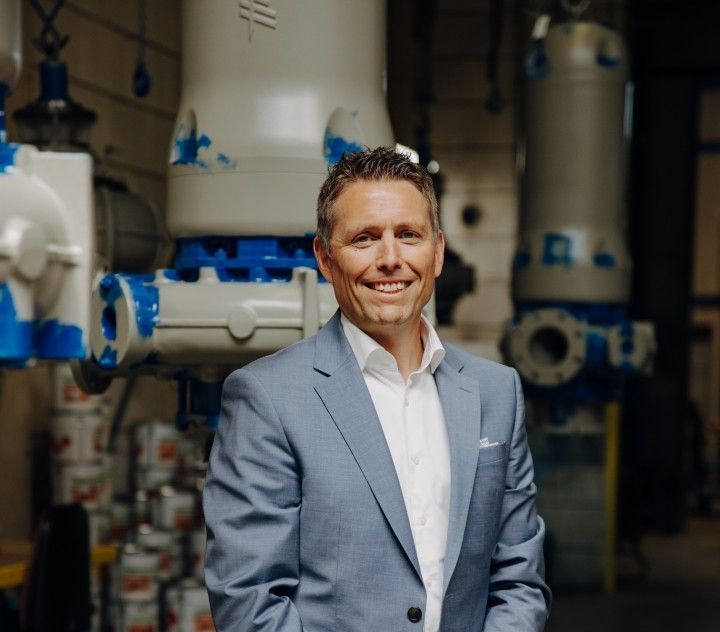
“If we were to improve the efficiency of all pumps by just ten percent, hundreds of power plants could be spared globally."
Rolf Schweizer, CEO Hidrostal
A company that goes above and beyond
“I firmly believe that, as responsible entrepreneurs, we need to do more in the area of sustainability than is required of us,” says Schweizer. “By taking a proactive stance, we can prevent unnecessary bureaucratic hurdles from being created that cause a lot of effort, limit our competitiveness, and provide little benefit.” This is not a new attitude at Hidrostal, but a tradition that has been in place since the company’s beginning.
The first pump
Peru, 1950: 28-year old mechanical engineer Martin Stähle steps off a ship in the port of Lima. Career prospects in Switzerland were modest at the time, so Stähle, from Canton Glarus, sought his fortune abroad. At the harbor, he watched fishermen heaving their catch off the boat with shovels. Not only was it difficult and tedious work, but many fish were left too damaged for sale. Stähle asked himself how fish could be brought ashore both efficiently and carefully. His answer: the world’s first fish pump, based on screw centrifugal technology that is still in use today.
Stähle quickly patented his invention, founding the company Hidrostal in Lima. But he didn’t stop there. If fish could be transported with a pump, why not potatoes, beans or spinach, or other products in food processing that travel for miles and must arrive undamaged. In 1966, he opened the second site in Neunkirch (SH). To date, five more production sites have been added worldwide, but Neunkirch remains the heart of the Hidrostal operation.
“Almost anyone can pump clear water - you don’t need us for that,” says Rolf Schweizer with a smile. “Our pumps are mainly used for demanding liquid-solid applications.” This is often vital, and the applications are diverse. For example, Hidrostal pumps can prevent enormous quantities of untreated wastewater from flowing into lakes and oceans. Or safely return endangered eels back to the sea after flooding. Or pump cellulose fibers in extreme heat and aggressive chemicals at the world’s largest cellulose factory in Brazil, around the clock for years without failure. And soon, they'll tackle the next big challenge of our time: the environmentally-friendly recyling of growing textile waste.
Size is relative - the effect is what matters
The largest Hidrostal pump is the size of a truck. It can pump 10,000 liters per second and it protects Jakarta from flooding. The smallest Hidrostal pump is barely larger than a coffee machine - used around the globe in wastewater treatment technology, the oldest one has been in operation for over 50 years. “A high level of efficiency over decades is proof of our quality,” explains Rolf Schweizer. “At Hidrostal, every component can be reordered - even 20 years after the pump’s initial production. We may lose out of sales, but our products last longer.”
Word gets around. Hidrostal impressively demonstrated that sustainability and economic success are not mutually exclusive. In 2024, the company increased its revenue by 8 percent over the previous year, while also reducing its carbon footprint by 8 percent. For Schweizer, this is just the beginning. “We have plenty of ideas for further potential savings, and the energy to implement them.”
This is made possible by a dedicated team of 150 employees in Neunkirch. From apprentices to management, everyone is working toward the same goal. Despite its global presence, Hidrostal remains a genuine Swiss family business that will continue to ask itself the same important question: How can we keep the world running with our pumps and keep improving them in the process? “Half of the world’s wastewater still flows untreated into rivers, lakes or oceans. We won’t run out of work any time soon,” Schweizer says, and gets back to work.
There is more
Schaffhausen newsletter
New to Schaffhausen or been here awhile? Stay up to date with our newsletter!
Welcome to the area for makers - you'll be hearing from us soon with exciting updates from Schaffhausen.
An error has occurred, please try again.



